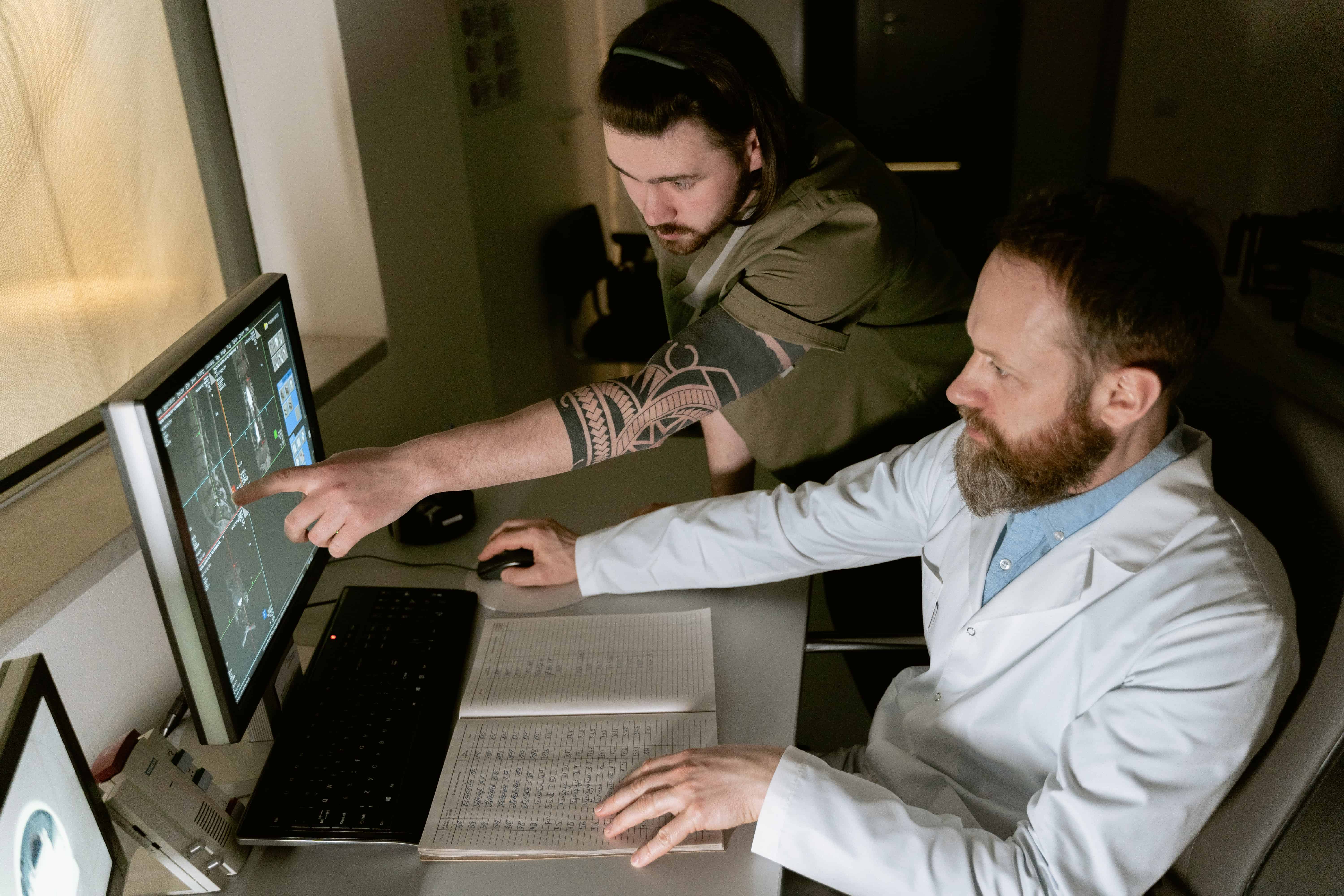The Exciting Intersection of AI and Nursing

For years, I’ve been obsessed over the potential applications of AI and nursing. Once considered the realm of science fiction, Artificial Intelligence (AI) has quickly become an integral part of our everyday lives. From virtual assistants like Siri and Alexa to sophisticated predictive analytics, AI has a hand in more aspects of life than you might realize. One area where AI’s impact is growing is in the field of healthcare, and more specifically, in nursing. Although a 2018 LinkedIn survey of nurses showed that the vast majority believe AI will negatively impact patient care, I beg to differ. So let’s dive into this exciting world and discover the potential applications of AI and nursing.
1. Bridging Language Barriers
AI-powered translation services can address this issue, enabling seamless communication in real-time. These applications can translate spoken words from the nurse’s language to the patient’s, and vice versa. This can be particularly beneficial in emergency situations where there’s no time to wait for a human interpreter. The patient can express their symptoms and concerns in their native language, and the AI can instantly translate it for the nurse to understand and act upon.
2. Enhanced Patient Monitoring

Continuous monitoring of patients is a crucial part of healthcare, but it can be challenging for nurses juggling multiple patients. Enter AI. With wearable devices and AI-driven software, real-time monitoring of vital signs can become the norm. AI can alert nurses to any significant changes, enabling swift intervention and potentially saving lives.
3. Efficient Workflow
Management AI can play a substantial role in managing work schedules and patient assignments. By analyzing patient needs, staff skills, and shift patterns, AI can create optimal workflows, reducing nurse burnout and ensuring patients receive the best possible care.
4. Personalized Patient
Education Educating patients about their health and wellness is a vital part of a nurse’s role. AI can deliver personalized education resources directly to patients’ smartphones or tablets, taking into account their unique conditions, lifestyle, and learning preferences. This allows for more comprehensive and targeted patient education, ultimately leading to improved health outcomes.
5. Precision Medication Management
Administering and managing medication is a complex task. AI can reduce the risk of errors by double-checking doses, alerting nurses to potential drug interactions, and monitoring patients for signs of adverse reactions.
6. Predictive Analytics for Patient Outcomes
AI’s ability to analyze vast amounts of data can provide valuable predictive insights. These insights could help anticipate patient complications or readmissions, allowing for early interventions and better patient outcomes.
7. Virtual Nursing Assistants

AI-driven virtual nursing assistants, available 24/7, can answer patients’ questions, provide basic health advice, and even guide them through at-home exercises. While they’ll never replace human nurses, they can provide valuable support, especially for patients managing chronic conditions at home.
8. Enhanced Continual Learning
With the rapid advances in healthcare technology, nurses need to continually update their knowledge and skills. AI can personalize this learning, suggesting the most relevant and up-to-date resources for each nurse based on their specialties and learning goals.
9. Reduction in Administrative Tasks
AI and nursing could partner to significantly reduce the administrative workload that nurses often find themselves burdened with. Nurses, who should be dedicating their precious time to patient care, instead frequently find themselves completing documentation and other administrative tasks. AI has the potential to automate many of these processes, streamlining record keeping, appointment scheduling, and follow-up reminders. Such automation would not only save valuable time, but also minimize human error, creating a more reliable and efficient system.
10. Decision Support Systems
In conjunction with medical professionals, AI has the potential to enhance decision-making capabilities. Decision Support Systems (DSS) utilize AI algorithms to analyze medical data, interpret findings, and suggest possible courses of action. These AI-driven recommendations can support nurses in making more accurate and effective clinical decisions. In complex cases where numerous factors need to be considered, the role of AI and nursing can be vital in providing comprehensive care.
11. Improving Home Care
AI technology can bring a significant change in home care nursing, especially for patients with chronic conditions who require continuous monitoring and care. AI-powered devices and applications can monitor a patient’s vital signs, medication intake, and physical activity. They can send alerts to nurses if any anomaly is detected, allowing for immediate attention. Furthermore, AI can provide patients with reminders to take their medication, keep their appointments, or engage in recommended physical activities, ensuring continuity of care.
12. Simulations and Training
AI-driven simulations can provide nurses with realistic training scenarios, improving their skills and competencies. These simulations can mimic real-life situations, offering nurses the opportunity to practice handling emergencies and complex cases. This blend of AI and nursing education can accelerate the learning process and improve readiness for real-world scenarios.
13. Data-Driven Preventative Measures
By analyzing patterns in patient health data, AI can predict potential health risks and help implement preventative measures. This is particularly beneficial in nursing care for patients with chronic diseases, where early detection of health deterioration can significantly impact treatment outcomes. AI can assist nurses in tracking potential health risks and alert them to take preventative steps.
14. Enhanced Communication
AI-powered chatbots and virtual assistants can facilitate more efficient communication between nurses, patients, and their families. These AI tools can answer routine questions, provide updates, and relay messages, freeing up nurses’ time for more critical tasks. Additionally, AI tools can bridge language gaps, ensuring clear and accurate communication regardless of language barriers.
15. Supporting Mental Health
The integration of AI and nursing can also extend into the realm of mental health. AI applications can monitor a patient’s mental health status, picking up subtle changes in mood, behavior, or communication patterns that might indicate a problem. Nurses can use this data to provide timely and appropriate mental health support.
It’s essential to remember that AI is not about replacing nurses but augmenting their work. AI can handle data and analysis at lightning speed, but it cannot replace the empathy, emotional intelligence, and human touch that define nursing. By allowing AI to take on the more mundane tasks, nurses can focus on what they do best: providing compassionate care. The future of AI and nursing is not about man versus machine; it’s about man and machine working together to deliver the best possible healthcare. So here’s to the future – a future where AI and nursing collaborate to change the face of healthcare for the better.





